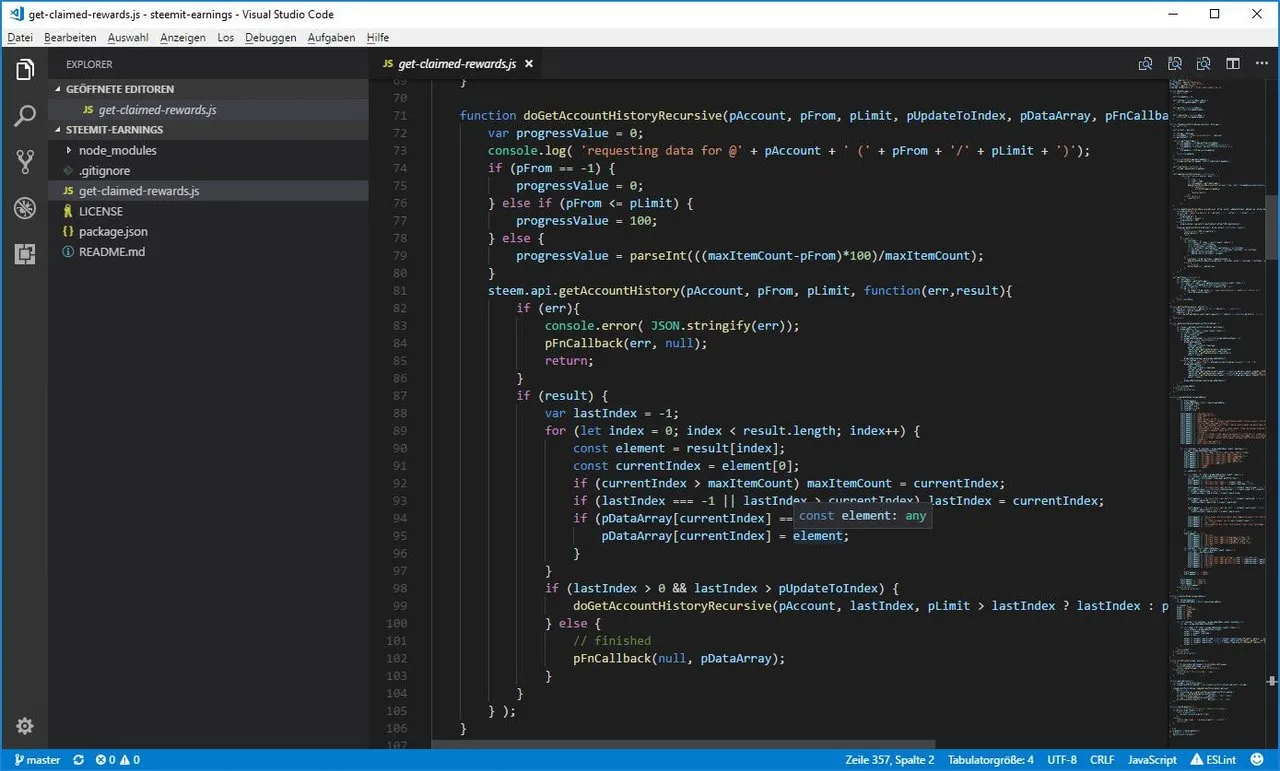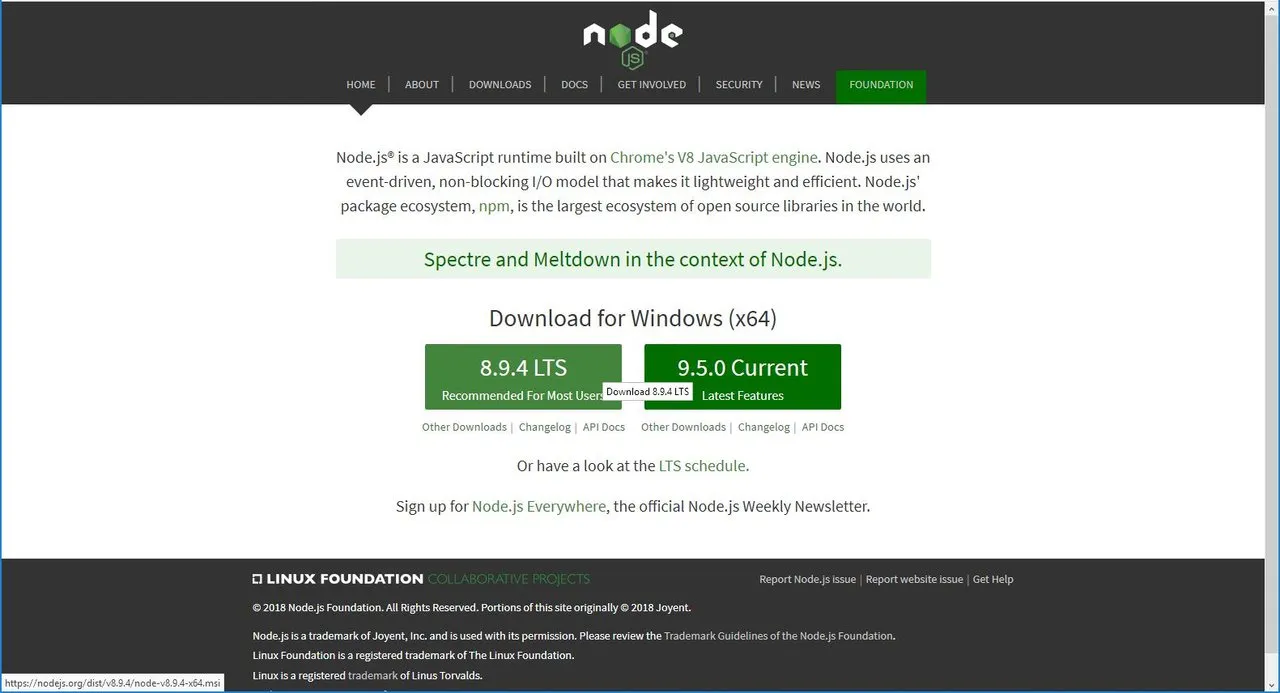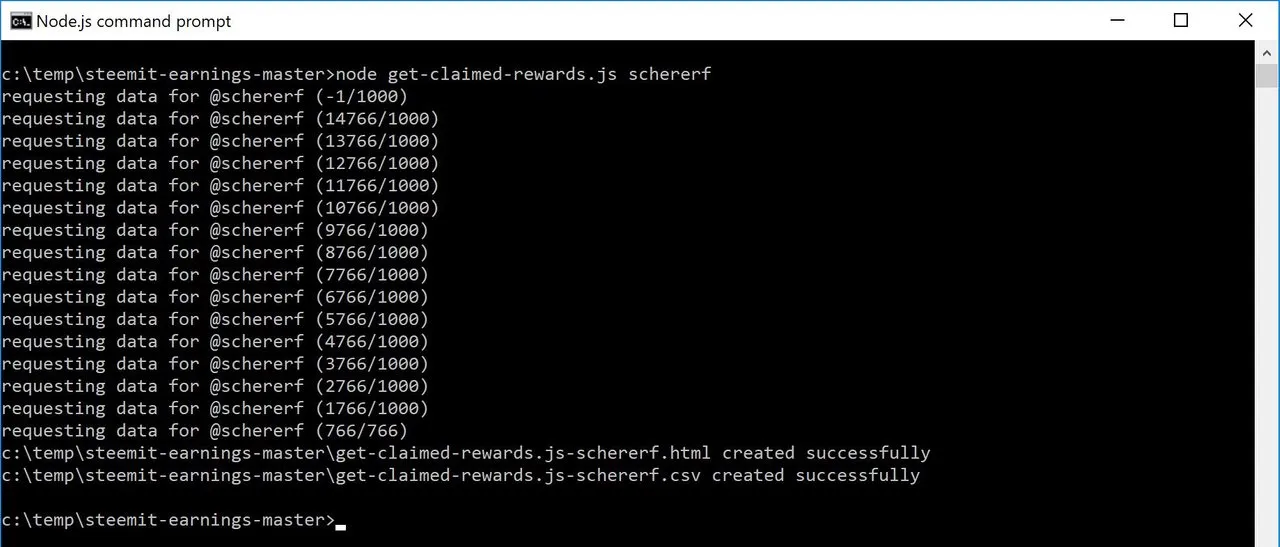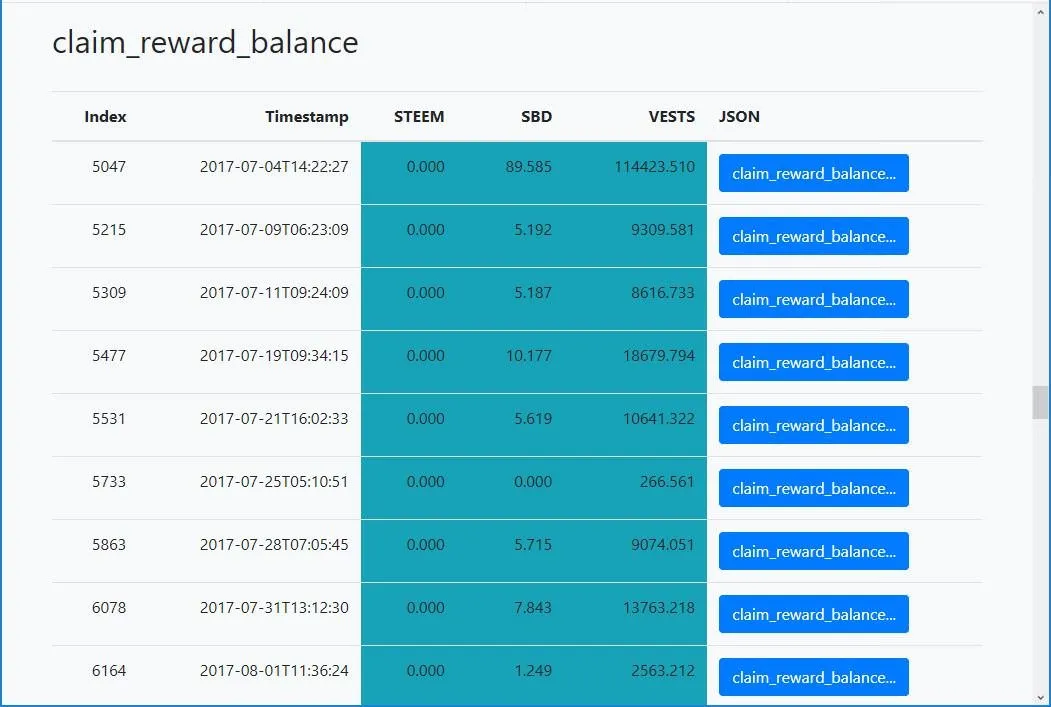With this post I start a little series that will show you how to get the value of your steemit earnings. This tool can simply be used for your personal interests or of course to create a template for reporting your steemit earnings for a financial office (as we need it in Germany for the tax office).
Note:
The created report is of course not an official document. It is just an idea on how to report your earnings!
The Mission
The requirements for the first part of this series are:
- Get the steemit earnings (STEEM, SBD, VESTS) for an account
- Create a HTML and CSV report
System Requirements
Visual Studio Code
For developing the program I used the free Code Editor "Visual Studio Code".
You can download it here: https://code.visualstudio.com/

nodeJS
As the runtime system for the program I used "nodeJS" (LTS version).
You can download nodeJS here: https://nodejs.org

Implementation
git repository
You can download the complete sources of this tutorial from my GitHub repository:
https://github.com/SchererF/steemit-earnings
using steemJS API
To get the values of your steemit rewards I used the steem.api.getAccountHistory() function of the steemJS API.
Get Account History
steem.api.getAccountHistory(account, from, limit, function(err, result) {
console.log(err, result);
});
Source: https://github.com/steemit/steem-js/tree/master/doc
This function expects three parameter as input
- The account name e.g. 'schererf'
- The from numeric value: use -1 to get the newest values with the highest identifier first
- The limit numeric value: the requested amount of data
Note:
- The from is not -1 the value of limit always has to be greater or equal than from
- The maximum value for limit is 10000
Because of the maximum value for limit you have to do several calls of the getAccountHistory function to get a complete list of operations for an account.
Example
Get the account history entry of account schererf that has the identifier 15626.
steem.api.getAccountHistory('schererf', 15626, 0, function(err, result) {
console.log(JSON.stringify(result));
});
Result JSON object:
[[15626,
{"trx_id":"2af66774318058213dab404eb9016697a01f4139",
"block":19828301,
"trx_in_block":63,
"op_in_trx":0,
"virtual_op":0,
"timestamp":"2018-02-13T08:05:39",
"op":["claim_reward_balance",
{"account":"schererf",
"reward_steem":"0.000 STEEM",
"reward_sbd":"21.246 SBD",
"reward_vests":"14086.296566 VESTS"}]}]]
This entry shows my rewards of 21.246 SBD and 14086.296566 VESTS that I have claimed on 2018-02-13 08:05:39.
There are different values for the Operation type (op) but to get the earnings we only need the entries of type 'claim_reward_balance'. I also included the entries of type 'transfer' for further evaluations.
Let's do it
Download the sources
Just go to my GitHub repository and Download ZIP
https://github.com/SchererF/steemit-earnings

Extract the downloaded zip to your preferred folder.
Open Node.js command prompt
Open the the "Node.js command prompt" and change to the folder of the extracted program.
Install the required packages of the program
For implementation I used several node packages :
- steem: The steem JS API
- fs: To create the output files
- bluebird: Fully featured promises library
- node-fetch: Brings 'window.fetch' to Node.js
Just execute the following command to install all required packages for the program.
npm install

Run the program
To run the program you just have to enter
node get-claimed-rewards.js "accountname"
(e.g.)
node get-claimed-rewards.js schererf
The program request all account history data for the specified account and creates a HTML and a CSV file as output.

Take a look at the output HTML
The created HTML uses the bootstrap-framework and looks like this.
By clicking on the "claim_reward_balance..." button you can see the JSON data of the underlying history entry.

Tutorial Preview
In the next parts of this little series we will have a look at how to get the Steem Power (SP) value for the VESTS reward and how to report the STEEM and SBD earnings as EUR/USD based on the historical exchange rate of the reward claim date.
Please give me feedback if this tutorial was helpful for you.
Thanks for reading and watching,
@schererf